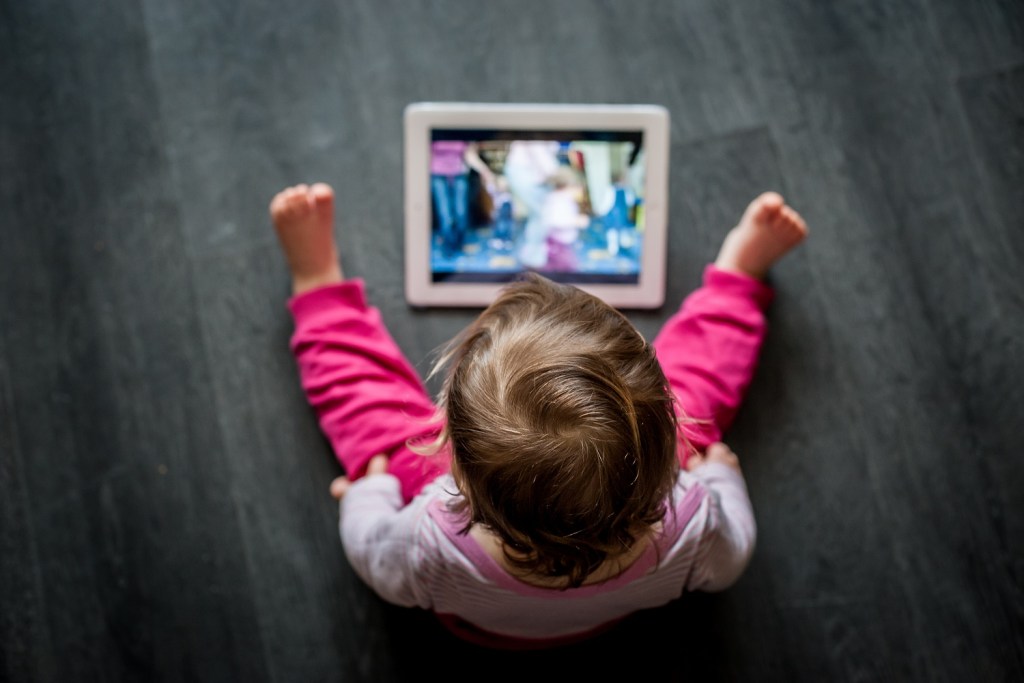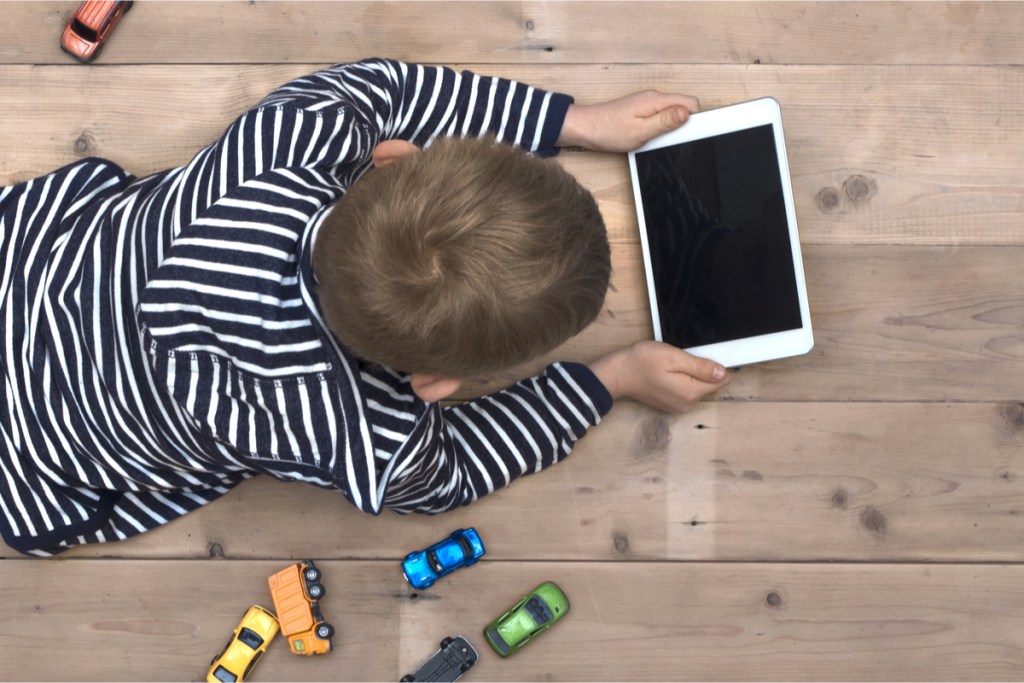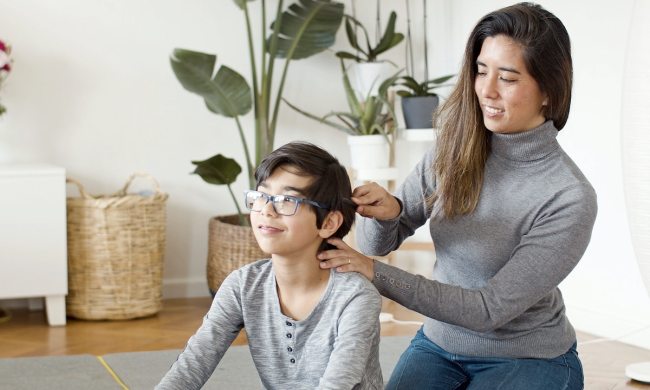Technology like tablets, TVs, and smartphones are everywhere and almost unavoidable in today’s world. The American Academy of Pediatrics recommends zero screen time for children under two years old and just one hour or less per day until age five, but surviving in a tech-heavy world is tough.
However, looking at the effects of technology on children, it may be worth keeping them away as long as possible and much as possible. It may damage their brains, behavior, physical development, and more.
There are two sides to every story and we’ve looked at what the experts and studies have to say on technology and kids below.

Are there positive effects of technology on children?
“Technology, when used correctly, can actually have a very positive effect on a child’s development,” writes early childhood development specialist Anastasia Moloney. “Regular interfaces with technology can lead to improved hand-eye coordination, multi-tasking, and reaction time. However, when screen time is not properly controlled, there can be negative effects of technology on child development.”
Technology is an integrated, necessary, unavoidable, and helpful part of our world and children will inevitably interact with it. As with most things with parenting, it’s all about balance and moderation.
There are both positive and negative effects of technology on children. We go through them below.

Positive effects of technology on children
Educational games can help kids improve memory, learn their ABCs or math, and other skills. Learning how to use tablets and phones is also an important skill on its own since that is an inherent part of life in school, work, and life everywhere today. Some programs may help kids learn how to problem-solve, multi-task, code, draw with a stylus, and other important or cool skills.
Once kids are old enough to have their own phones and be away from their parents, technology is also an important safety tool so that parents can get in touch with their children when apart. Apps like the Microsoft Family Safety app can track your child’s location and help you keep in contact. Being able to call 911 or a parent in an emergency is a definite positive of technology. Certain phone apps can also track teens’ driving speeds and keep them from texting and driving.
Negative effects of technology on children
On the other hand, too much screen time can have several very negative short-term and long-term effects on children. These are well-established and include:
- lower attention span
- increased aggressive behavior
- obesity
- vision problems
- sleep problems
- exposure to malicious adults online or to cyberbullying
- exposure to harmful online content not meant for their age
- decreased social skills
- depression
- technology addiction
Let’s get more specific on some of these negative effects to better understand them.
Brain development
Children who use too much technology can have issues with reduced attention. Multiple studies have drawn a link between extensive screen time, TV watching, video game use, or computer use and symptoms of ADHD. This may be because of the constant, repetitive shifts in attention and multitasking that shows and games ask of the brain and that hurt executive functioning. When the brain can’t function in a usual social way or rest, it is hyper-stimulated by what it is seeing on the screen and that can do damage.
Physical growth
Children who watch more TV get less physical activity. Without that exercise, kids don’t get the physical development they need to grow their muscles and bones healthily.
Social development
More time in front of a screen also means less time to talk with real people, which is the best way for young children to learn verbal skills and the best way for all children to learn social skills.
“Overuse of electronic devices may cause impairment in the development of a child’s social skills,” writes Adrianne Albarado Ortiz, LPC, RPT, a children’s therapist at West Texas Counseling & Guidance. “This includes the ability to make friends in person, take responsibility for actions, display good manners, use polite language, control emotions and temper, follow verbal directions, and develop empathy for others.”
Technology and kids: Best in moderation
While there are positive effects of technology on children, the negative effects mostly come from too much exposure. If you keep screen time limited, these negative effects are less likely to appear. Try to stick within your pediatrician’s recommendations and your best judgment of a balanced day of social time, screen time, and physical activity for your child.



